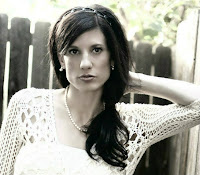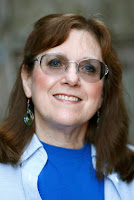GUEST BLOGGER: Elle Lothlorien
Sleepy
Stories: How Real Life Makes For Great Fiction (and Vice Versa)
The last thing I remember, I was in an
elevator, rattling with agitation like a washing machine trying to spin an
uneven load of laundry. A kind woman in a uniform—maybe police, maybe security—stood
next to me. “Sorry, I get tired,” I tried to tell her through my tears. My
words came out like mush.
When I wake up, I’m on a hotel
room bed in my clothes. I sit up fast, trying to make sense of what’s happened.
I can hear people talking, but I can’t see them. Then it all comes back to me.
Hotel. Grand Hyatt. Conference.
A woman appears from the hallway,
and I’m relieved to find that I know her. She’s my friend and my roommate, and
I’m at Thrillerfest, a writer’s conference held every year in New York City.
She asks me how I feel, but she doesn’t ask “what happened?” She might not know
the specifics, but she has a pretty good idea.
I have narcolepsy. My body’s sleep-wake
cycle doesn’t work properly. No matter how many hours of sleep I’ve had—five,
eight, twelve—I feel like I’ve been on a sleepless bender for a week. As a
result, my brain is always trying to put me to sleep. It doesn’t care where I
am, or what I’m doing, or who I’m with.
I outsmart it with a medication that I take
every three hours, using an alarm on my phone to remind me. When the alarm goes
off, I have about a ten minute window in which to take my next dose. If I don’t,
things start to happen, cascading from bad to worse, until I either take my
medicine or find something go to sleep on.
Unfortunately for me, when my
alarm sounded, my pills were in my room. Even more unfortunate: I couldn’t get the
hotel room door open. We’d complained several times since our arrival about the
lock; sometimes the key would work, sometimes it wouldn’t. This was a
“sometimes it wouldn’t” situation.
By the time I reached the lobby, my
head was already filling with cobwebs. I found a person wearing a hotel uniform
and I blurted out the words I’d been reciting over and over in my mind: “I
can’t get into my room, and I’m having a medical emergency!”
Maybe he heard “I can’t find my broom,
and I’m here for the insurgency!” because he told me to stand in line at the
front desk.
And that was it. Time was up, sand
through the hourglass, the window closed.
First to go are nouns. I can “see”
the words in my head that I’m trying to say—cat, mat, rat—but when I try to say
them, it’s like the worst version of “cat’s got your tongue” you can imagine.
One noun that I am able to say: “thing.” As in: “Can you hand me the thing on
the thing?” As the situation goes from bad to worse, I sound like I have a
mouthful of rocks, no matter what I say.
Next to set in is the confusion. Suddenly, I don’t
know where I am. My brain feels like a huge bank of old, rusty filing cabinets,
with drawers chock-full of useful information—if only I could open them. Mine are
stuck. No matter how hard I pull, they won’t budge.
As I stumbled around the hotel
lobby in circles, my panic growing right alongside an irresistible need to
sleep, I could hear people behind me muttering.
“I don’t know what she’s doing.”
“I think she’s drunk.”
“Call security.”
Many people think they know what
narcolepsy is because they’ve “seen it on TV.” What I call “Hollywood
narcolepsy,” is typically used for comic effect in movies or TV, usually by
some guy stopping in mid-conversation, falling face-first into a bowl of shrimp
bisque, and sawing logs like a lumberjack.
If you want to get technical, the
full-body collapse described above is a symptom of narcolepsy called
“cataplexy.” My cataplexy is mild by comparison, with speech loss, slurred
words, mild muscle control problems in my face, arms and legs (hence the mushy
sounding words and the stumbling), confusion, and blackouts. After about ten
minutes, one of two things will happen:
1.
I will take my medicine.
2.
I will sleep.
Whichever one I do, I will feel
completely normal twenty to thirty minutes later.
Narcolepsy is a pain in the ass.
My symptoms have worsened in the nearly ten years I’ve had it, and it’s
affected almost every part of my life: work, family, hobbies. Everyone in my
family and most of my friends know I have it (hang around me long enough and it
becomes a little difficult to hide). I wear a medical alert bracelet (in case I
lose the ability to speak clearly, or I need to lie down and sleep, I can just
hold it out to someone and won’t have to worry that they’ll call 911 or
security). It reads:
Narcolepsy
Cataplexy
May
have slurred speech
or
become suddenly sleepy
This
is not a medical emergency
When readers crack open my
romantic comedy/suspense Sleeping Beauty or the “alternate
ending” version Sleeping Beauty Wakes Up! they find
this dedication:
For my mother, Linda Loy, who selflessly and
lovingly
put the pieces of my life back together
while I slept.
After reading that, it’s natural
for people to assume that there is an autobiographic element to Sleeping Beauty—that is, that the main
character, Claire Beau, is a fictionalized me.
She is not.
In
December 2010, my romantic comedy The Frog Prince became an Amazon
bestseller. Unfortunately, I was still flailing around, still thinking about my
next book. I knew I had to stick to the “loose riff on a fairy tale” theme that
had made Frog so popular, but I was
fresh out of ideas. And then…
One morning on NPR, I heard a story
about a young woman who suffered from a sleep disorder called Klein-Levin Syndrome
(KLS), also called "Sleeping Beauty Syndrome." KLS is severely
debilitating, with sufferers experiencing prolonged bouts of sleep combined
with blackout periods that can last for day or weeks. Oftentimes,
they will appear by others to be functioning perfectly normal, but will have
no recollection of this time after they "wake up."
Two things I took away from this
story:
1.
Someone has it worse than me.
2.
C’mon…“Sleeping
Beauty Syndrome?” It was like I’d prayed to the fiction gods, and they’d
delivered with all the subtlety of a safe dropped on my head.
Sleeping Beauty (A Romantic Comedy/Suspense) started out as a straightforward
comedy about a woman who "wakes up" to find that she had supposedly in
the middle of a whirlwind love affair with a man she despises. Not long after I
began the novel, the symptoms of my own illness worsened, beginning with mini-blackouts
called “automatic
behavior” that lasted about ten or fifteen seconds. Although I’d appear to
be functioning normally to anyone watching—having a conversation, loading the
dishwasher—I’d “come to” and have blanks in my memory, or be in a room I didn’t
remember walking to. Depending on what I’m doing and where I am, this can be
mildly irritating or hugely embarrassing. If I’m at home, the damage is
minimal. If I’m in public, I might “come to” in the middle of conversation with
someone, and ask them a question I apparently already asked, or suddenly just
“check out,” my eyes going out of focus, my eyelids drooping, and my jaw
dropping open.
Although the characters in Sleeping Beauty are very funny, and they
find themselves in situations that are very humorous (à la The Frog Prince), as I wrote it, the story began to take a more
somber, mysterious turn. This was a result, no doubt, of the struggle I was
having managing the long-term effects of narcolepsy in my own life.
The Frog Prince became a bestseller
after only three months. Sleeping Beauty,
at six months, was a little more sluggish to do so. (Perhaps it was tired.) It will,
I think, always be the novel nearest and dearest to my heart. Every laugh and
tear in the book was cathartic to write, and I often think that if Claire Beau
was a real person, we would understand each other very well.
Hell, if either of us was able to
stay awake long enough, we might even be friends.
My next romantic comedy Rapunzel will be out later this summer,
followed by Alice in Wonderland just
in time for Christmas.




.jpg)





Comments
Thanks for waking me up and opening my eyes… so to speak.
Thanks, Patricia for hosting this!
And I love your covers.
P.S. Peg: It still might not hurt to keep a breathalyzer if you hang around me, especially on Friday/Saturday nights. Hey--it's summer! :-)